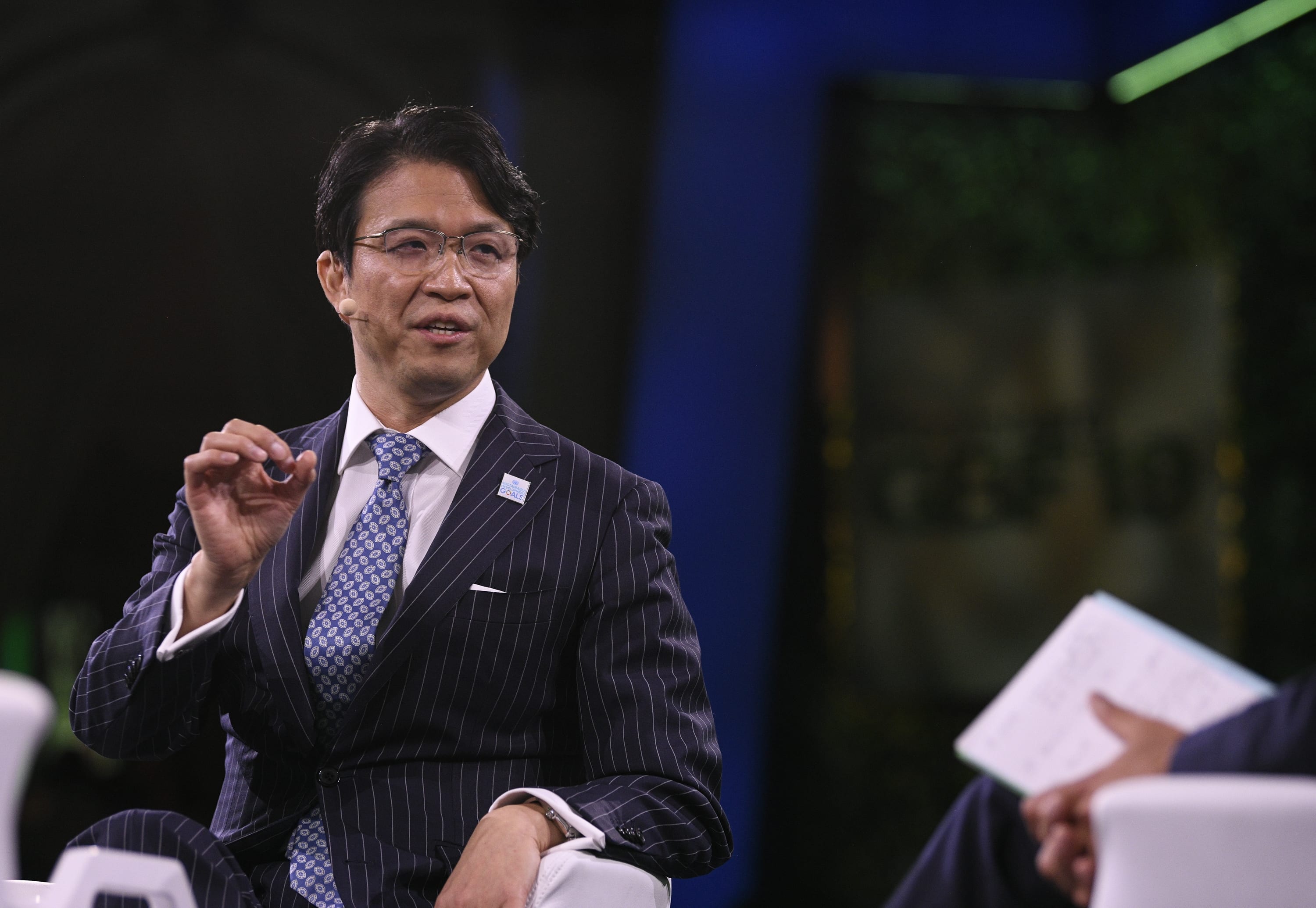Posted in: news
26th March 2021
The B Team Brief is our monthly digest of what we're doing, discussing and reading on the path toward an inclusive economy. Sign up to receive each month's edition in your inbox.
A Note From Halla Tómasdóttir
Last week, one of the world’s boldest leaders was forced to step down as Chairman and CEO of Danone, a giant in the food and beverage industry. A B Team Leader, Emmanuel Faber was one of the few CEOs who doesn‘t just talk about sustainability, equality and accountability, but walks the talk through meaningful action.
His departure sadly seems to come down to insufficient quarterly results in the eyes of a few shareholders. This explanation, however, begs further questions. What is the right time horizon for how we measure results? What should be included in our metrics of success? How do we measure brave and future-fit leadership?
The need for CEOs to account for all stakeholders is clear, but they are still being brought to task by one of these constituents: shareholders. If we are going to reset our economic system and put a stakeholder-centric model into practice, we need an interrogation of what’s making it impossible to lead for the long term.
That starts with setting a new baseline for success. At the end of the day, the onus should not be on CEOs to take risks in operationalizing new business models. Our economic system should be set up to support these transitions. One way to do so is to make measuring what matters mandatory. Reporting on ESG goals that includes information on environmental impacts, performance against racial and gender equity targets and more can provide a starting point.
Leading companies, like Mastercard, are even starting to tie executive compensation to ESG goals—recognizing the need to develop new markers of success. These efforts remain voluntary for the time being, but the shift toward a foundation of mandated ESG disclosure is growing. As momentum moves in this direction, it is important that all stakeholders play a role in developing the specifics of these efforts. Our economic system won’t work for everyone if shareholders are the only ones to have a say.
We cannot ask our leaders to be brave while continuing to measure and incentivize conformity in leadership. Our jobs may be at risk, but so is our children‘s future. Who will you choose to be?
What We're Doing
This week, Danone joined the growing group of multinationals endorsing our Responsible Tax Principles. Along with 21 other businesses, the company will use the Responsible Tax Principles as a blueprint to evolve its own tax policies and practices while advocating for a fairer, more sustainable global tax system.
The past year has placed 25 years of progress toward gender equality at risk. Ahead of next week’s Generation Equality Forum, Jesper Brodin, Sharan Burrow, Mo Ibrahim and Mary Robinson are asking the private sector to do its part—by making gender-balanced and diverse C-suites a reality by 2025.
Creating long-term value for shareholders doesn’t require aggressive tax behavior. Leading investors, Domini Impact Investments, Norges Bank Investment Management and PensionDanmark, are standing behind this sentiment and calling on companies to commit to responsible tax practice.
The transition toward a clean energy future is inevitable, what is not inevitable is that this shift delivers decent work and quality jobs for all. In partnership with the National Business Business Initiative (NBI), we’re hosting a conversation on what’s needed to secure a just transition in different country contexts—with a specific focus on the energy sector.
What We're Discussing
"Shared prosperity and stabilizing the planet can’t coexist with the demands of an investment model that puts profits before people." Our Vice-Chair, Sharan Burrow, writes on why Emmanuel Faber’s departure from Danone highlights the need to reconcile with the realities of the transition toward stakeholder capitalism.
"Gender inequality is not an issue that sits on its own and International Women’s Day inspires me to fight for a post-pandemic world free from all injustices." On International Women’s Day, Mary Robinson urges global leaders to keep women at the forefront of COVID-19 recovery efforts—recognizing the links between gender equality, climate justice and more.
"When we work together, one plus one can equal three." Our Co-Founder, Sir Richard Branson, reflects on how The B Team came together and why this model of radical collaboration—across business, civil society and government—can create real and lasting change.

Company Spotlight: This Month in 10x Bolder Leadership
Ambitious corporate climate leadership cannot exist within solely company walls. Business can, and must, use its influence to advance the public policies needed to uphold the promise of the Paris Agreement. This month, Salesforce showed its stakeholders what this kind of leadership on climate looks like.
The company published its climate policy platform, including the principles that guide its advocacy. The principles Salesforce put forth—from scaling nature-based solutions to ensuring a just and equitable zero-carbon transition—highlight the importance of a holistic policy agenda on climate.
Salesforce's move also comes after Corporate America’s relationship with politics has come under increasing scrutiny following the attack on the U.S. Capitol earlier this year. While there’s more to be done to reset the private sector’s relationship with politics, Salesforce’s transparency around its advocacy approach marks a step in the right direction.
What We're Reading
One year into the COVID-19 pandemic, are governments providing workers with the support they need? The International Trade Union Confederation’s latest polling finds a majority of respondents across G20 countries in agreement that governments must do more for workers who have lost wages and jobs.
What steps can investors take to ensure their portfolios are aligned with reaching net-zero emissions by 2050 or sooner? The Paris Aligned Investment Initiative’s recently-released framework offers guidance for asset owners and managers to take action.
How can Corporate America’s CEOs move from promises to practices to advance racial equity? A new report from the Brookings Institution examines how CEOs can take action and why they are uniquely placed to make meaningful progress in their regional economies.

His legendary leadership in promoting stakeholder capitalism and ESG should be remembered among all who supported those philosophies."